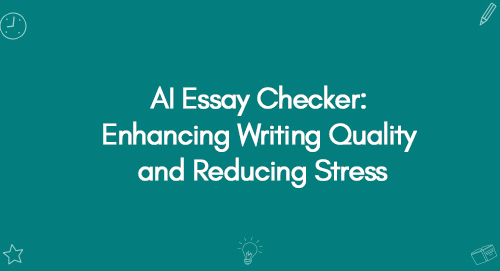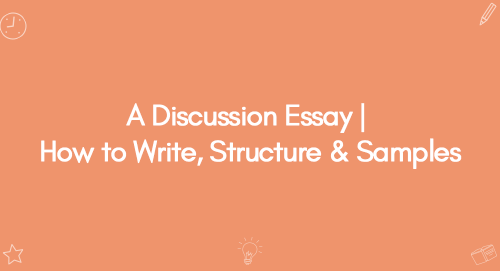What Is a Rebuttal in an Argumentative Essay | Importance and Examples
What Is a Rebuttal in an Argumentative Essay | Importance and Examples

Critical Reflection Essay | A Complete Guide
March 26, 2024
Essay Structure Example | Tips and Common Pitfalls to Avoid
April 4, 2024A rebuttal is indeed a systematic way of responding to opposing views to strengthen your argument. It involves carefully considering and addressing objections or counterarguments to your position in a structured manner. In argumentative essay writing, including a rebuttal is important because it shows you've thought about different opinions carefully.
Learn How to Structure an Argumentative Essay
Here you will find a complete guide on the importance of rebuttals in argumentative essays, including examples of how to use them effectively to craft compelling arguments.
Importance of Rebuttal in Argumentative Essays
When writing an argumentative essay, it's important to include a rebuttal section. This helps to strengthen the writer's argument and make it more persuasive. In this text, we will explore why rebuttals are crucial for crafting compelling essays.
Engaging with Diverse Perspectives
When writing a rebuttal, it's important to acknowledge and engage with different perspectives on the topic at hand. By directly addressing opposing viewpoints, writers show a willingness to engage in dialogue and consider alternative opinions. This can help to create a more meaningful discussion.
Find Out the Best Topics for an Argumentative Essay
Strengthening the Writer's Argument
A well-executed rebuttal strengthens an argument by addressing potential weaknesses and counterarguments, enhancing the credibility and persuasiveness of an essay.
Promoting Critical Thinking
When we write a rebuttal, we have to think very carefully about our topic. We need to look at different opinions and explain why we disagree with them. This helps us show that we can think about complex issues and make good arguments based on evidence.
Demonstrating Depth of Understanding
Including a rebuttal in our writing demonstrates our understanding of a topic and our ability to present a balanced argument.
Addressing Objections or Counterarguments
Anticipating and addressing potential objections or counterarguments in an essay can pre-empt criticism and strengthen the writer's position. This proactive approach demonstrates foresight and thoroughness, which can improve the overall quality of the essay.

Writing a Rebuttal Paragraph in an Argumentative Essay
It's important to write a strong paragraph in an argumentative essay that explains why you disagree with other people's opinions. This will make your argument stronger. Here is a simple guide with an example to help you write your rebuttal paragraph.
Step 1: Introduce the Counterargument
To effectively present your argument, it is important to acknowledge the opposing viewpoint or counterargument. Begin by providing a summary of the opposing stance to ensure clarity for your readers.
For instance: some people may argue that implementing stricter gun control laws would infringe upon individuals' rights guaranteed by the Second Amendment of the Constitution.
Step 2: Assert Your Position
Clearly state your position or thesis in response to the counterargument. This sets the stage for your rebuttal and helps maintain focus throughout the paragraph.
Example: However, it is imperative to recognise that the primary goal of stricter gun control measures is to enhance public safety and prevent tragic incidents of gun violence.
Step 3: Provide Evidence or Reasoning
Present evidence, logical reasoning, or examples that support your position and refute the counterargument. Use factual information and persuasive language to strengthen your rebuttal.
Example: Statistics from countries with strict gun control laws, such as Japan and Australia, demonstrate significantly lower rates of gun-related deaths and mass shootings compared to the United States, where gun laws are more lenient.
Step 4: Address Potential Weaknesses
Address any potential flaws or counterpoints in your argument directly. This demonstrates honesty and integrity in your reasoning.
Example: While opponents may argue that stricter gun control measures limit individual freedoms, it is critical to balance these concerns with the broader societal benefit of reducing gun violence and saving lives.
Step 5: Conclude with Emphasis
Conclude your rebuttal paragraph by emphasizing the strength of your argument and summarising your main points. Give your readers a strong impression of your position.
Example: In conclusion, while the gun control debate is complex, the evidence strongly supports the need for stricter regulations to protect public safety and prevent senseless tragedies.
Example of a Rebuttal Paragraph in an Argumentative Essay:
Some may argue that stricter gun control laws would violate individuals' rights guaranteed by the Second Amendment to the Constitution. However, it is critical to recognize that the primary goal of stricter gun control measures is to improve public safety and prevent tragic acts of gun violence. Statistics from countries with stricter gun control laws, such as Japan and Australia, show significantly lower rates of gun-related deaths and mass shootings than in the United States, where gun laws are more relaxed. While opponents may argue that stricter gun control measures limit individual freedoms, it is critical to balance these concerns with the societal benefit of reducing gun violence and saving lives. In conclusion, while the debate over gun control is complex, the evidence overwhelmingly supports the need for stricter regulations to protect public safety and prevent senseless tragedies.
Frequently Asked Questions (FAQs)
Final Thought
In conclusion, any writer managing the challenges of argumentative essays needs to be proficient in the art of crafting a rebuttal. It not only acknowledges opposing viewpoints but also strengthens the author's argument through careful analysis and evidence-based refutation. By embracing and engaging with opposing perspectives.



















